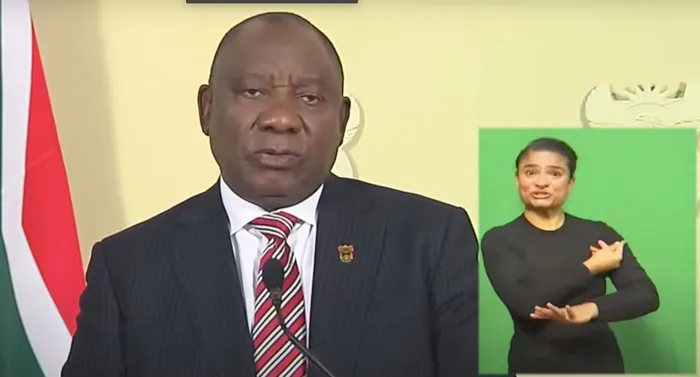Supreme Court of Appeal rejects NCPD bid to make South African TV accessible for the deaf

The National Council of and for Persons with Disabilities lost a SCA bid to force Icasa to also incorporate the mandatory use of subtitles during important government announcements and news broadcasts as it maintains that not everyone can read sign language.
Image: File
In a blow for people who are deaf or hard of hearing, the National Council of and for Persons with Disabilities (NCPD) has lost yet another legal battle in its bid to make South African television more accessible for those with hearing problems.
The organisation earlier took the Independent Communications Authority of SA (Icasa) to the Gauteng High Court, Pretoria, to have its Code for Persons with Disabilities Regulations 2021 reviewed and set aside. When it lost its high court bid, the NCPD turned to the Supreme Court of Appeal, which on Friday also ruled against it.
In its legal battle to make television more inclusive for those with hearing problems, the NCPD pointed out that in South Africa, the use of a sign language interpreter has been adopted to portray broadcasts to sign language users.
However, the limitation to the use of a sign language interpreter in television news broadcasts is that the majority of persons with hearing loss neither understand nor use sign language as a means of communication. This group includes the elderly - one in three people over the age of 65 and two in three over the age of 70.
The NCPD has lobbied since 2015 for access to news bulletins and public service announcements - including the State of the Nation Address and budget speeches and since 2020, the regular addresses by the President on the Covid-19 pandemic - to carry subtitles.
Icasa issued a directive in April 2021 requiring the broadcasting industry to use closed captioning (CC) or closed subtitles. Both of these require technology similar to a TV decoder or the internet, which are not affordable to the majority of South Africans.
In addition, open captioning (OC) or open subtitles, which do not require additional technology and are easily accessible to the public, have not been made compulsory in the regulations, despite NCPD’s request, it said.
It earlier told the court that consequently, poor households in South Africa will remain without access to live captioning or subtitles on television, including breaking news or public announcements, thus severely limiting their ability to use public broadcasts as a means of important information.
The NCPD maintained that this constitutes impermissible discrimination against persons with hearing disability, who use spoken language and not sign language as their primary form of communication.
It argued that Icasa, as the national regulator, has the constitutional duty to ensure that all South Africans, including those with disabilities, can access broadcast information on an equal footing.
Prior to turning to court, the NCPD communicated with Icasa, stating that its 2021 Code does not fairly cater for persons with disabilities who lack access to the internet or technology. It made several suggestions in this regard which it said were not considered. It subsequently turned to the high court on the basis that the code must be overturned. It argued that Icasa failed to consider the NCPD’s submissions prior to the promulgation of the code.
Judge Ronel Tolmay dismissed the application on the ground that the NCPD had unreasonably delayed in bringing it.
The SCA, in its judgment on Friday, found that Icasa was not under any legal duty to impose specific requirements on broadcasters to provide subtitles or sign language interpretation. Judge Fayeeza Kathree-Setiloane, who wrote the unanimous judgment, said while the NCPD’s cause was commendable and necessary, this was an issue which lies in the domain of the legislature, and it was not for the courts to “fill in legislative gaps".
zelda.venter@inl.co.za
Related Topics: